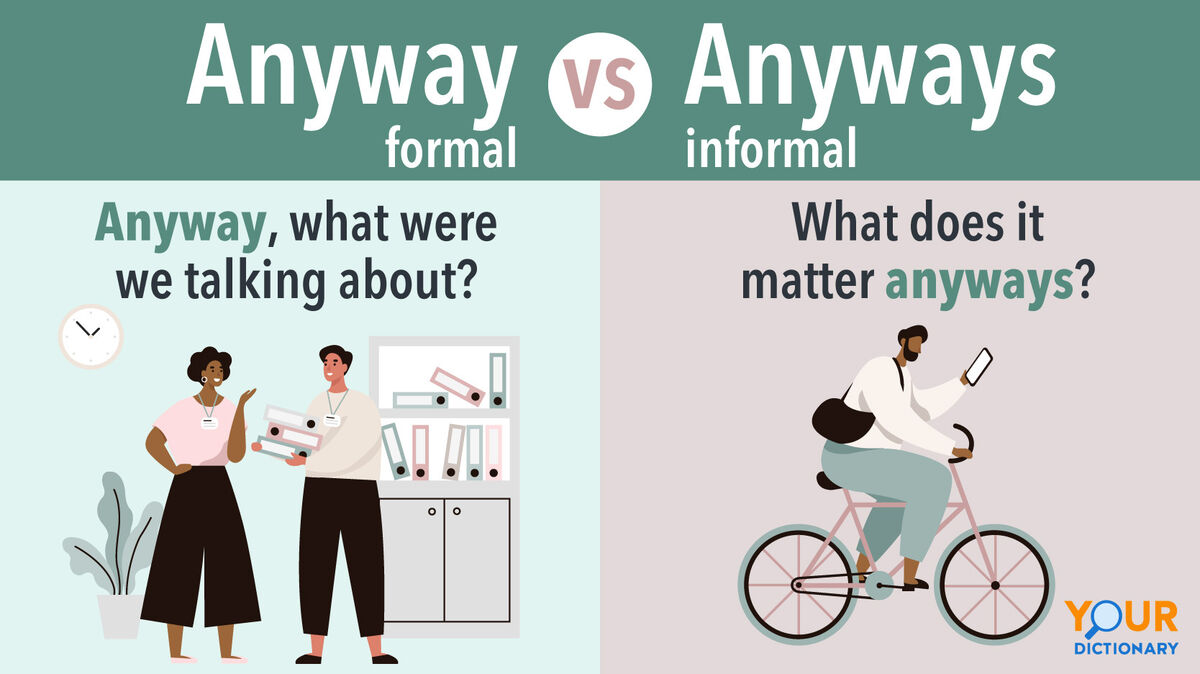
Have you ever written anyways instead of anyway? Many people use these interchangeably, but do they mean the same thing? And which is correct, anyway (or anyways)? The answer is not so straightforward. Discover the difference between anyway and anyways, as well as when and how to use them correctly.
The Difference Between Anyway and Anyways
The tricky thing about anyway and anyways is that, technically, there's no difference between them. They mean the same thing. The only real difference is that one is grammatically correct and the other is a term that is not encouraged in formal writing.
anyway - in any case; another thought; something that supports a previous statement
anyways - a variant of anyway (widely considered incorrect or informal)
Meaning and Usage of Anyway
Anyway is an adverb. It can be used in an argument to disregard a previous point, introduce a new thought, mean “regardless,” or mean “in spite of.” Anyway is always preferable in formal writing but can be used in more informal situations as well.
Anyway, it doesn't matter. (disregard previous point)
I didn’t feel like it, but I went to school anyway. (regardless)
Anyway, let's go to the basketball game tonight. (introduce new thought)
Ways to Use Anyways
Anyways is typically regarded as informal speech and grammatically incorrect. However, it is accepted in some casual speech and writing. Anyways can be used in all the same ways as anyway, and it is typically used as a transition from one topic to another or to convey the same meaning as “in spite of.”
Anyways, what were we talking about?
What does it matter anyways?
Anyways, as I was saying ….
What About Any Way?
Any way, written as two words, has a different meaning than anyway or anyways. Any way refers to a particular direction or manner.
You can go any way you want.
Is there any way I can help?
The leaves will go any way the wind blows.
Anyway, Check Out Some Similar Vocabulary Words
Explore similarly confused words like toward and towards or terms that are often used interchangeably such as cannot, can not and can’t. Expanding your knowledge of confusing vocabulary words will help you communicate what you really mean to say.